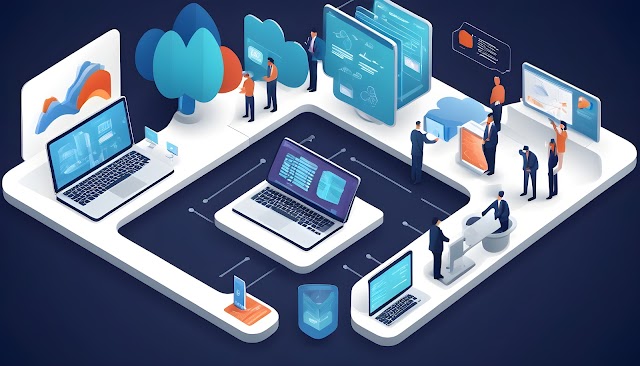Cybersecurity for Freight Forwarders: Protecting Data in a Digital World
As freight forwarders integrate more digital tools into their operations, the sector becomes increasingly vulnerable to cyber threats. This digital pivot, while streamlining operations, exposes sensitive data to potential cyberattacks. For freight forwarders, safeguarding this data is not just about protecting their own business; it’s about securing the supply chain, preserving customer trust, and complying with international data protection regulations. The Importance of Cybersecurity in Freight Forwarding The role of a freight forwarder invo…
The Future of Freight Forwarding: Automation and AI in PH Logistics Industry
The Philippine logistics sector is undergoing a remarkable transformation, driven by the integration of advanced technologies like automation and artificial intelligence ( AI ). As global trade dynamics evolve and the demand for more efficient, reliable, and scalable logistic solutions increases, freight forwarders in the Philippines are finding that embracing these technologies is no longer optional but essential. This column explores how automation and AI are shaping the future of freight forwarding in the Philippines and how businesses can …
Embracing the Future: The Superiority of SwaS Over Traditional SaaS
In today's fast-paced and ever-evolving business landscape, staying ahead of the curve is the key to success. The software industry, in particular, has witnessed a profound transformation over the years, and this transformation is reshaping the way organizations operate. One of the most significant shifts we've witnessed is the evolution from traditional Software as a Service (SaaS) models to the innovative Software with a Service (SwaS) paradigm. As the CEO of a fast growing logistics technology company, I want to shed light on why Sw…
How to Adopt New Technologies in Freight Forwarding Without Disruption
In today’s rapidly evolving business landscape, the freight forwarding industry is under increasing pressure to adapt and innovate. The integration of new technologies can drive efficiency, reduce costs, and enhance service delivery, providing a competitive edge. However, adopting these technologies without causing operational disruptions poses a significant challenge. This article outlines practical strategies for seamless technology adoption in the freight forwarding sector. Understand Your Needs and Set Clear Objectives Before integrating a…
Green Logistics In The Philippines: Paving The Way For A Sustainable Future
In recent years, the Philippines has seen a significant shift towards sustainability, especially in the logistics sector. This movement is driven by a growing awareness of environmental issues and a strong commitment to reducing the carbon footprint of logistics operations. As the industry evolves, companies are increasingly adopting green practices to meet both consumer expectations and global sustainability standards. The push for green logistics in the Philippines encompasses various initiatives, from using electric vehicles for deliveries …
The New Digital Wave: E-Commerce and Its Impact on Logistics in the Philippines
Introduction: The Shift to Online Shopping Before the pandemic, people in the Philippines shopped both in stores and online. But when COVID-19 hit, everyone started shopping online a lot more. This big change made companies think about how they deliver things to make sure everyone gets their orders fast and safely. E-commerce, or shopping online, really took off in the Philippines, growing from just a few thousand online stores to over 90,000 in less than a year. Big online shopping sites like Lazada and Shopee helped make this happen by reach…
Tech Empowerment in Philippine Logistics: Opportunities for Growth and Innovation
The logistics sector is a critical component of the Philippine economy, supporting trade both within the archipelago and internationally. Despite its importance, the industry faces significant challenges, including infrastructural deficits, regulatory complexities, and a fragmented geography. Against this backdrop, technology serves as a powerful tool for empowerment, providing avenues for increased efficiency, resilience, and growth. This exploration looks into the technological advancements reshaping Philippine logistics, highlighting the s…
Know About The author
schedule for demo
Popular Posts












Connect with us